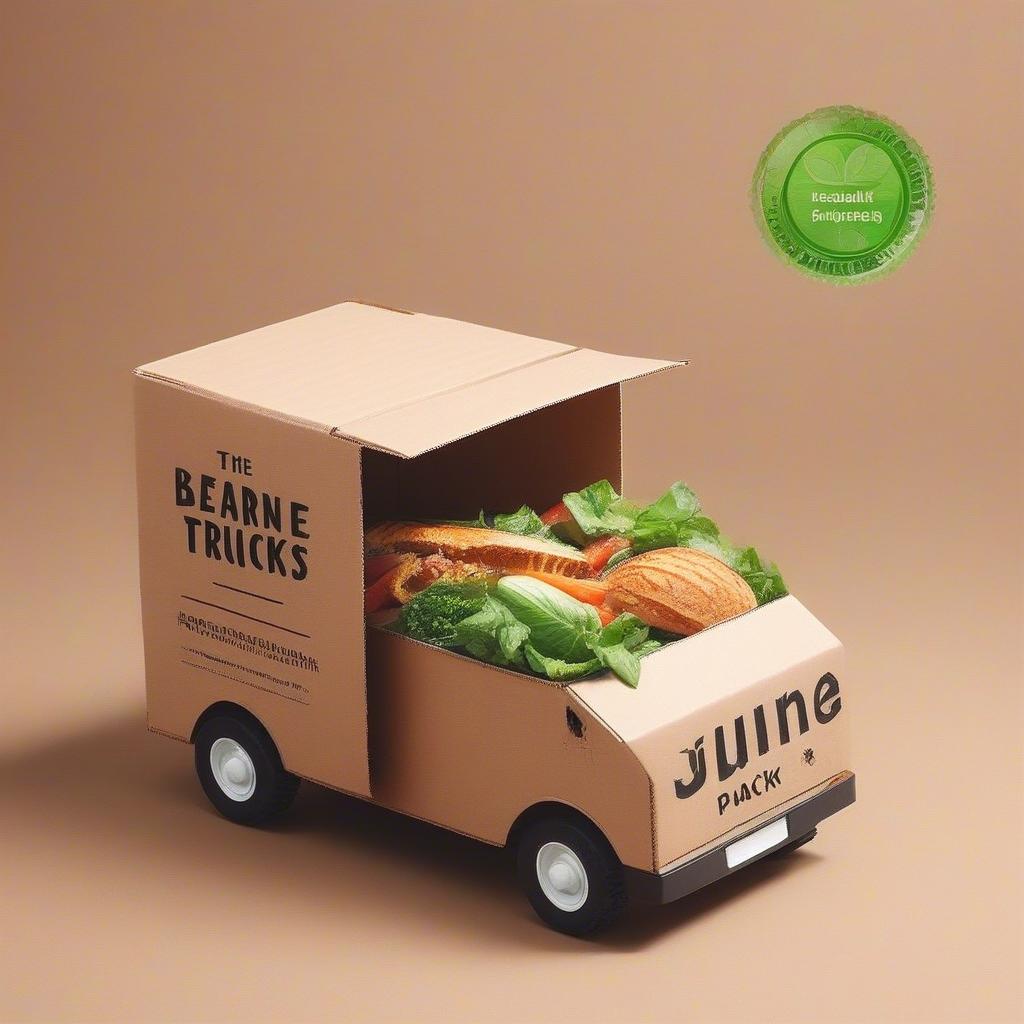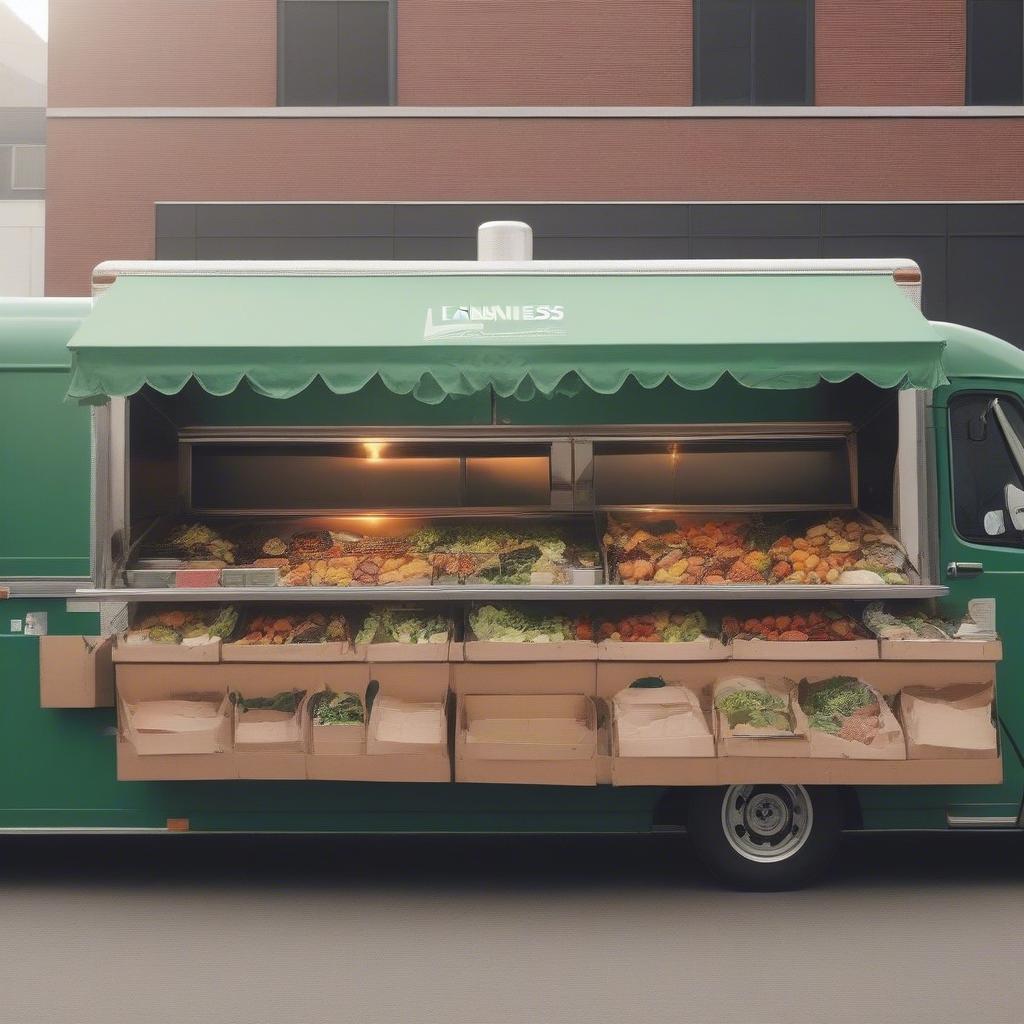
How to Set Goals for Your Food Truck Startup
Starting a food truck is a whirlwind of excitement and hard work. But without clear direction, that whirlwind can quickly turn into chaos. That’s where goal setting comes in. Setting smart food truck goals isn’t just about dreaming big; it’s about creating a roadmap for your success, ensuring every move you make pushes you closer to your vision. This article will guide you through the process, providing you with the tools and strategies to define and achieve your business objectives for your mobile culinary adventure.
Why Are Goals Crucial for Your Food Truck Startup?
Before diving into the "how," let’s understand the "why." Why are well-defined startup tips, including goal-setting, so vital?
- Direction and Focus: Goals act as your compass, pointing you towards your desired destination. Without them, you might find yourself adrift, wasting resources and energy on activities that don’t contribute to your overall vision.
- Motivation and Momentum: Seeing progress towards achievable goals fuels your motivation. Each small win provides a boost, encouraging you to keep going, especially during those inevitable tough days.
- Measurable Success: Goals allow you to track your progress and measure your success. This helps you understand what’s working and what needs adjustment, allowing for data-driven decision-making.
- Strategic Decision-Making: When faced with choices, your established goals act as a filter. You can evaluate each opportunity based on whether it aligns with your overall objectives.
- Resource Allocation: Knowing what you’re trying to achieve helps you allocate your resources, like time, money, and staff, more effectively.
- Improved Accountability: By setting clear goals, you hold yourself (and your team) accountable for your actions.
In short, goal setting transforms a dream into a plan, helping you navigate the challenges of starting a food truck with clarity and purpose.
Different Types of Goals for Your Food Truck
Your business objectives won’t be a single, monolithic target. You’ll need a variety of goals covering different areas of your operation. Here’s a breakdown:
1. Financial Goals
These relate to your monetary performance and are essential for long-term sustainability. Examples include:
- Revenue Targets: Specific monthly, quarterly, or annual revenue figures you aim to achieve.
- Profit Margins: The percentage of revenue you keep after expenses. Aiming for a healthy profit margin is crucial for profitability.
- Cost Management: Setting goals for keeping expenses under control, like food costs, operational expenses, and marketing spend.
- Break-Even Point: Determining when your revenue will cover all your costs. Achieving this point is a significant milestone for a startup.
- Funding Goals: If you’re seeking investors or loans, setting specific funding targets is essential.
Example: "Achieve a monthly revenue of $10,000 within the first six months of operation and maintain a profit margin of 25% by the end of the year."
2. Customer Acquisition & Retention Goals
These focus on attracting new customers and ensuring their loyalty. This is a crucial aspect of your food truck startup tips.
- Customer Acquisition Targets: Specific numbers of new customers you want to attract each week or month.
- Customer Retention Rates: The percentage of customers who return to purchase again. Aiming for a high retention rate is key for long-term success.
- Customer Satisfaction: Measuring and improving customer happiness through surveys, reviews, and feedback.
- Brand Awareness: Increasing your visibility in the community and online.
- Social Media Engagement: Measuring likes, comments, and shares to gauge engagement with your brand.
Example: "Acquire 100 new customers per week within the first three months and achieve a customer retention rate of 40% by the end of year one."
3. Operational Goals
These focus on the day-to-day running of your food truck. These are directly impacted by strong startup tips and preparation.
- Efficiency: Improving the speed and efficiency of your food preparation and service.
- Inventory Management: Optimizing your inventory to minimize waste and avoid shortages.
- Staff Management: Hiring, training, and managing a reliable and efficient team.
- Maintenance and Upkeep: Ensuring your food truck is in excellent working order and adheres to health and safety standards.
- Legal Compliance: Staying compliant with all relevant regulations and permits.
Example: "Reduce food preparation time by 15% within two months and maintain a 95% compliance rate with health and safety regulations."
4. Product Development & Menu Goals
These relate to your offerings and the evolution of your menu.
- Menu Variety: Introducing new dishes and specials to keep your menu fresh and exciting.
- Ingredient Sourcing: Sourcing high-quality, fresh ingredients from local suppliers.
- Product Innovation: Developing new and unique menu items that stand out from the competition.
- Customer Feedback Integration: Using customer feedback to refine your menu and offerings.
- Specialty Diets: Expanding your menu to cater to specific dietary needs (vegetarian, vegan, gluten-free, etc.).
Example: "Introduce one new menu item each month and source 75% of ingredients from local farms by the end of the second year."
5. Personal Goals
Don’t forget about yourself! Starting a food truck can be demanding, so it’s important to set goals related to your well-being:
- Work-Life Balance: Balancing your business with your personal life.
- Skill Development: Learning new skills related to business management, cooking, marketing, or other relevant areas.
- Personal Growth: Setting goals for personal development and learning from your experiences.
- Health and Wellness: Prioritizing your physical and mental health.
Example: "Take one day off each week and dedicate at least one hour each day to learning about digital marketing strategies."
SMART Goals: A Framework for Success
Now that you have an idea of the different types of goals, let’s discuss the framework that will help you set effective ones. Your food truck goals should be SMART:
- Specific: Clearly define what you want to achieve. Instead of saying "increase revenue," say "increase monthly revenue by 10%."
- Measurable: Your goal should have a way to track your progress using quantifiable metrics, like numbers or percentages.
- Achievable: Set goals that are challenging but within reach given your resources and circumstances.
- Relevant: Ensure your goals align with your overall vision and business objectives.
- Time-bound: Set deadlines for each of your goals. This helps create a sense of urgency and accountability.
Let’s apply this to an example:
Instead of: "Get more customers."
Try: "Increase the number of new customers by 15% each month for the next six months."
This goal is now specific, measurable, achievable, relevant, and time-bound. It gives you something concrete to work towards.
Steps to Set Effective Food Truck Goals
Here’s a step-by-step guide to help you set actionable goals:
- Brainstorm: Start by listing all potential goals for your food truck, without worrying about whether they are SMART or not. Consider each of the goal types we discussed (financial, customer, operational, etc.).
- Prioritize: From your list, identify the most important goals, using a prioritization matrix if necessary. Consider which goals will have the biggest impact on your success.
- Refine: Turn those priority goals into SMART goals using the framework we outlined.
- Break Down: Break down large goals into smaller, more manageable steps. This makes them less daunting and easier to achieve.
- Assign Responsibilities: If you have a team, assign responsibilities for each goal. This ensures accountability and shared ownership.
- Document: Write down your goals and make sure everyone involved is aware of them. This is crucial for keeping everyone on the same page.
- Track Progress: Regularly monitor your progress towards your goals, using KPIs (Key Performance Indicators). This will help you make necessary adjustments.
- Review and Adjust: Goals are not set in stone. As your business evolves, you need to regularly review your goals and adjust them as needed.
- Celebrate Successes: Acknowledge and celebrate your progress along the way! This will boost morale and motivation.
Practical Examples of Food Truck Goals
Here are some practical examples of SMART goals tailored for a food truck business:
- Financial: "Achieve a daily average revenue of $500 in the first three months, increasing to $800 by the end of the first year."
- Customer: "Collect 50 online customer reviews with an average rating of 4.5 stars by the end of the second quarter."
- Operational: "Reduce food waste by 10% within the next month by implementing stricter inventory management practices."
- Menu: "Introduce one new seasonal menu item every three months to keep our offerings fresh and appealing."
- Personal: "Attend one food truck industry workshop or webinar each month to stay updated on the latest trends."
Tools & Templates to Aid in Goal Setting
To make the process even easier, consider using these tools and templates:
- Spreadsheet Software (Google Sheets, Excel): Create a simple spreadsheet to track your goals, KPIs, and progress.
- Project Management Tools (Trello, Asana): Organize your goals and tasks with project management software.
- Goal-Setting Apps (Strides, Habitica): Use specialized apps designed to help you set, track, and achieve your goals.
- SWOT Analysis Template: Use a SWOT template to evaluate your Strengths, Weaknesses, Opportunities, and Threats. This helps you set goals that align with your overall business strategy.
- Business Plan Template: Use a comprehensive business plan template to organize all aspects of your business, including financial projections and marketing plans.
- KPI Dashboard Template: Use a KPI dashboard template to monitor your key metrics.
Using Learn Business to Fuel Your Food Truck Success
Learn Business is a valuable resource designed to support businesses at every stage, including food trucks. We understand the unique challenges you face and offer tailored guidance, templates, and resources to help you thrive.
Here’s how Learn Business can assist you with goal setting and beyond:
- Customized Business Plans: Learn Business provides you with customizable business plan templates specifically designed for food trucks. These templates cover crucial aspects, like market analysis, financial projections, and operational plans, all aligning with your specific goals.
- Financial Forecasting Tools: We offer tools that help you create accurate financial forecasts, essential for setting realistic revenue and profit margin goals. This allows you to confidently plan your financial trajectory.
- Marketing Strategy Guidance: Access resources on developing effective marketing strategies to achieve your customer acquisition and brand awareness goals. Learn how to leverage social media, local events, and other channels to reach your target market.
- Operations Manual Templates: Streamline your daily operations with our templates for inventory management, staff training, and food safety protocols, directly supporting your operational goals.
- Mentorship Opportunities: Connect with experienced mentors who understand the food truck industry and can provide invaluable advice and support in goal setting and achieving your business objectives.
- Regular Webinars and Workshops: Stay up-to-date on the latest trends and best practices in the food truck industry through our webinars and workshops, which can help you set future-proof goals.
- Access to Legal and Compliance Resources: Our resources help you navigate legal and compliance matters related to your food truck operation, ensuring you are meeting all necessary requirements, and that your goals are legally sound.
- Community Forum: Connect with other food truck owners, share your challenges, and learn from their experiences. This helps you refine your goals and address challenges.
By using Learn Business, you’re not just setting goals; you’re setting your food truck up for success with the support and resources you need to thrive. It’s your comprehensive toolkit for planning, implementing, and achieving your vision for your mobile culinary enterprise.
Conclusion: Goal Setting – The Foundation for Your Food Truck Success
Setting clear, measurable, and actionable goals is the cornerstone of a successful food truck startup. It’s not a one-time task; it’s an ongoing process of planning, implementing, reviewing, and adjusting. By using the strategies and tools we’ve discussed, you can turn your dream of owning a food truck into a reality. Don’t just aim to operate; aim to thrive. And remember, Learn Business is here to support you every step of the way with comprehensive guidance, templates, and a community that understands your journey. Start setting your SMART food truck goals today and pave the way for a prosperous future. Your mobile kitchen journey begins now.



Leave a Reply